Breaking the Silence: How Egypt’s Fight Against Female Genital Mutilation is Transforming Lives
For decades, Female Genital Mutilation (FGM) has affected the lives of millions of women and girls in Egypt, where cultural traditions and misconceptions about religious obligations have fueled its persistence. However, a EU-supported joint initiative by UNFPA and UNICEF is rewriting this narrative by empowering communities, challenging social norms, and giving voice to survivors.
The UNFPA-UNICEF Joint Programme on the Elimination of Female Genital Mutilation is not just about ending FGM; it is about restoring dignity, health, and hope in communities long affected by this harmful practice.
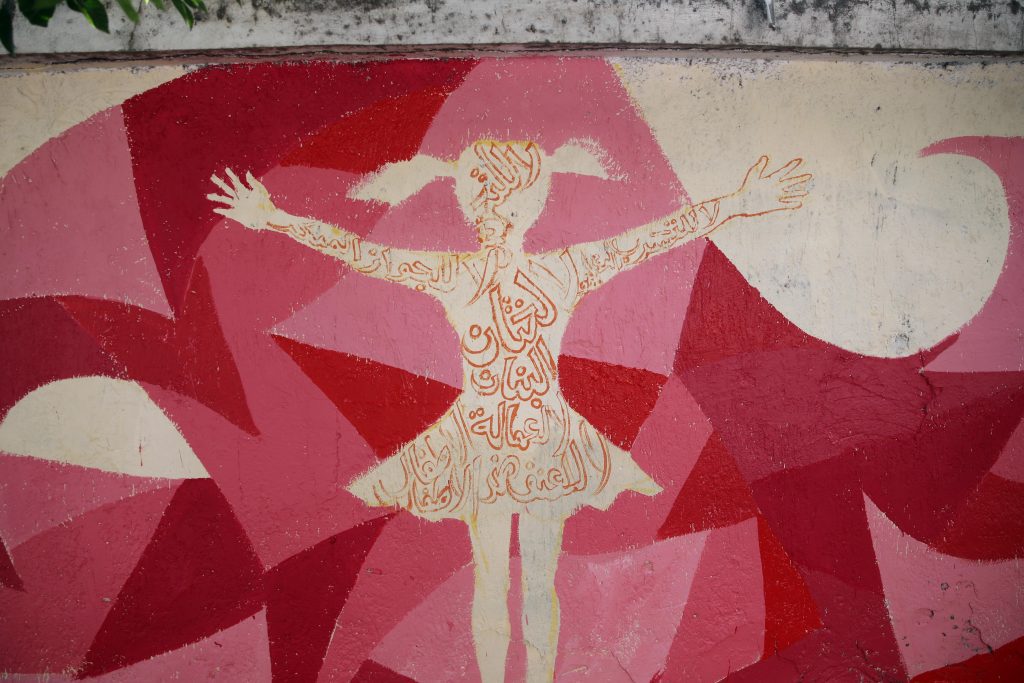 (c) UNFPA Egypt
(c) UNFPA Egypt
Helping Communities Rethink FGM: A Religious Leader’s Transformation
Abdel Moneim Muhammad Abdel Rahman Abu Al-Naga, a religious leader in a small Egyptian village, recalls his initial disbelief when he first attended a session on FGM. “I grew up believing FGM was a religious obligation. No one questioned it, and as a man, I wasn’t even aware of the physical and psychological damage it caused,” he shares.
Now, at 67, Abdel Moneim has become a powerful voice against FGM, helping to bridge the gap between tradition and modern health perspectives. “The project opened our eyes to the fact that FGM is not only harmful but also criminalised,” he stresses.
Far from being easy, his journey from supporter to outspoken advocate was a radical transformation. “The first time I even went to a session, I felt guilty. As a religious figure I thought ‘we cannot talk about this, it is only for women.”
“But I learned that there are religious scholars who researched the topic, and exposed its harms, be it social, psychological or physical. This made me reflect on a lot of misconceptions.”
Embracing his new role, Abdel Moneim has often been met with resistance from his peers, especially male community members. “Men are shy. During the sessions, you’ll see men covering their faces or someone laughing or winking. There is general shame in talking about it, but little by little everyone started accepting it,” he recalls.
But, using his religious knowledge and influence, Abdel Moneim has worked hard to change mentalities, tackling one of the biggest barriers in Egypt’s fight against the practice: the belief that it is a religious duty.
With Egypt’s population surpassing 100 million, the scale of the challenge is immense. However, the results of the multi-faceted programme offer hope. The prevalence of FGM among ever-married women has decreased from 92% in 2014 to 86% in 2021, with younger generations showing even more progress. The programme’s approach of engaging leaders like Abdel Moneim, once silent on the issue, helps families understand the risks and supports communities in redefining their cultural practices.
“Religious leaders are responsible for society. With one word, we can change everything,” concludes Abdel Moneim.

Voices of Change: Survivors Break the Silence and Build Trust
For Rabab Abdul Rahim, a survivor of FGM, the Joint Programme marked the discovery that changed her life.
“I was married young and had to move to another governorate, where I had no one. For over a month after marriage, I couldn’t even be intimate with my husband,” she reveals. One day, she joined a local awareness session on FGM and discovered a community of support that changed her life.
“Everything they said during the first session resonated with me,” Rahab remembers. As the psychological support and community-based interventions provided by the programme helped her process her trauma, she attended ten more sessions.
Transformed by this experience, Rabab took it upon herself to spread the word “I spoke to my brothers about it, my family, and signed up as a volunteer.”
These sessions are now known as “Rabab sessions”, as the young lady has become a trusted figure in her community, walking through her village to engage women in discussions about FGM, and encouraging them to attend awareness sessions.
“People recognise me; they ask when the next session will be. I am proud that I’m delivering a message and helping to save families,” Rabab shares with a smile. Her journey from silence to advocacy underscores the strength of survivors and highlights the community’s willingness to embrace change when trusted figures lead the way.
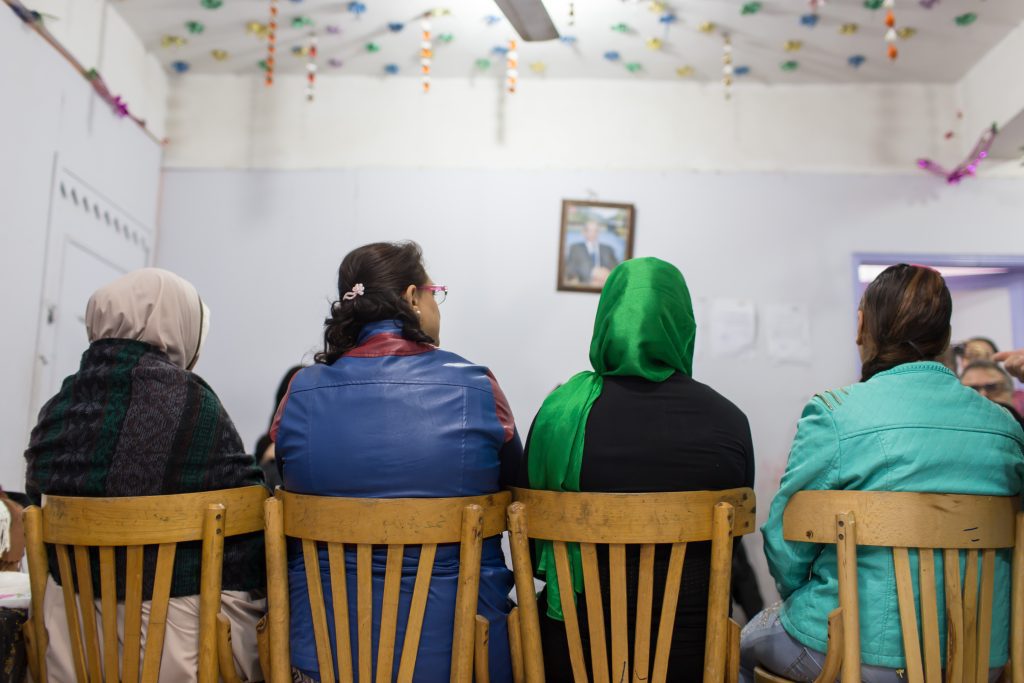
Innovative campaigns turning the tide against a deeply rooted practice.
The programme’s success is also due to passionate volunteers like Ahmed Gamil Abdel Wahab, who has been involved since 2019. As a male advocate, Ahmed faces unique challenges in engaging men and boys in conversations about FGM—a topic often dismissed as a “women’s issue.”
“I tell them that the negative impact is not just on women. Imagine if it were your sister or your wife,” Ahmed insists, using empathy to help men see the issue from a personal perspective. Through sports activities, interactive theatre, and awareness sessions, Ahmed has helped foster a new understanding among men and boys. “In villages, people think we’re here to change their beliefs, but we’re just here to talk. Some resist, but others listen and eventually understand.”
His approach reflects the Joint Programme’s focus on inclusivity, targeting not only women but also men and community leaders. By building support across all segments of society, the programme has created “ripples in stagnant water,” as Ahmed describes it, bringing issues once shrouded in silence into the open.
In parallel to the joint programme, the EU also funded the comprehensive “360 Degree Surround and Engage Platform Campaign” carried out by UNFPA across Egypt in 2023. It includes dedicated social media platforms (TikTok, Instagram and Facebook), and an engaging television drama series that has captivated audiences across Egypt. “Berry Leaves”, which spans 33 episodes, tackles issues like FGM, child marriage, and family planning, humanising the stories of women who have been affected by these practices.
The series has sparked widespread discussion and engagement, with social media platforms lighting up as viewers share their thoughts and reactions. Yves Sassenrath, Resident Representative for UNFPA in Egypt, notes that the programme is about more than awareness; it’s about fostering a “social conversation” in a country where mostly amongst poorer communities, FGM remains deeply anchored in social and cultural norms. “The series allows people to see the daily struggles of those affected by FGM without feeling lectured. It’s about connecting emotionally and starting a dialogue in homes across Egypt.“
In 2023, the campaign reached nearly 30 million people on social media and 108,000 users through the website
‘Every Small Ripple Counts’
The Joint Programme’s impact is also felt in rural areas, where FGM medicalisation remains a pressing issue. The trust placed in doctors, especially in remote communities, has sometimes lent an air of legitimacy to the practice, making it harder to combat.
UNFPA’s work includes training medical providers, updating legal frameworks, and engaging religious leaders to counteract this trend. The goal is to ensure that young doctors, especially those working in high-prevalence areas, are well-equipped to resist social pressure and uphold ethical standards, explains Fatimah.
For Ahmed, the future lies in diversifying activities to engage different audiences. “Some people like youth centres, others respond to storytelling or interactive workshops more. We need to meet people where they are,” he says, reflecting the programme’s commitment to grassroots change. Meanwhile, Rabab dreams of expanding the reach of her sessions to older women in the village, those who hold the strongest sway over family decisions. “If we can reach them, we can end this practice for good,” she says with conviction.
The EU-supported UNFPA-UNICEF Joint Programme on the Elimination of FGM in Egypt has set a powerful example of how targeted interventions, community engagement, and innovative media campaigns can challenge harmful norms. By working with religious leaders, empowering survivors, and engaging volunteers, it has ignited a movement that is gradually transforming communities across Egypt.
As religious leader Abdel Moneim notes, “Even if 10% understand and know the harms of FGM, at least they will tell more people and spread it”. Change takes time. Step by step, these communities of change are working to dismantle the cultural acceptance of FGM and paving the way for a healthier, safer future for Egypt’s women and girls.
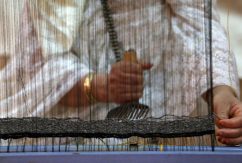
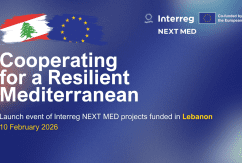

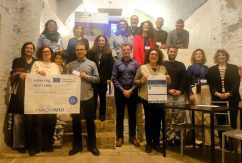

























 Syria
Syria 


